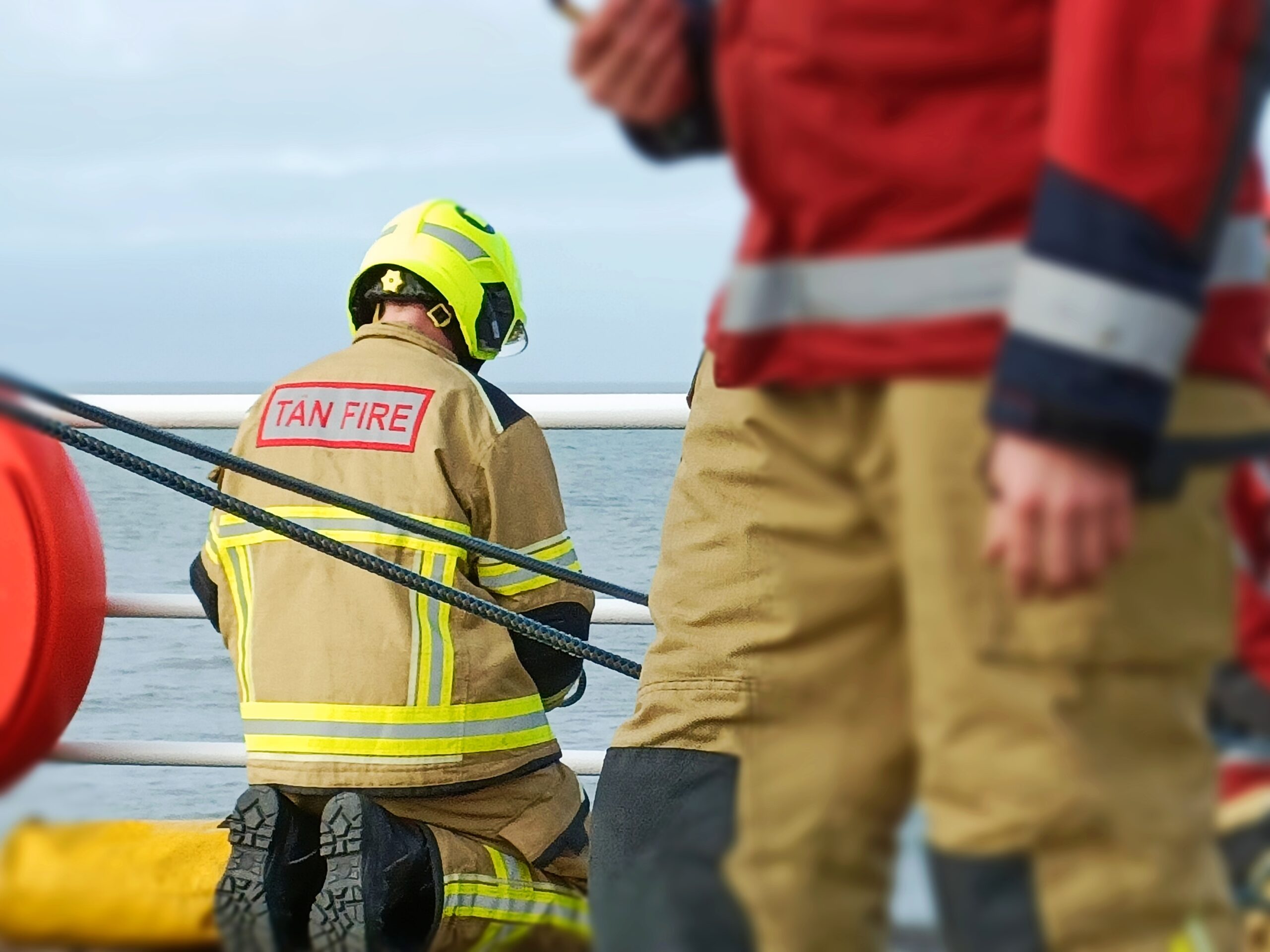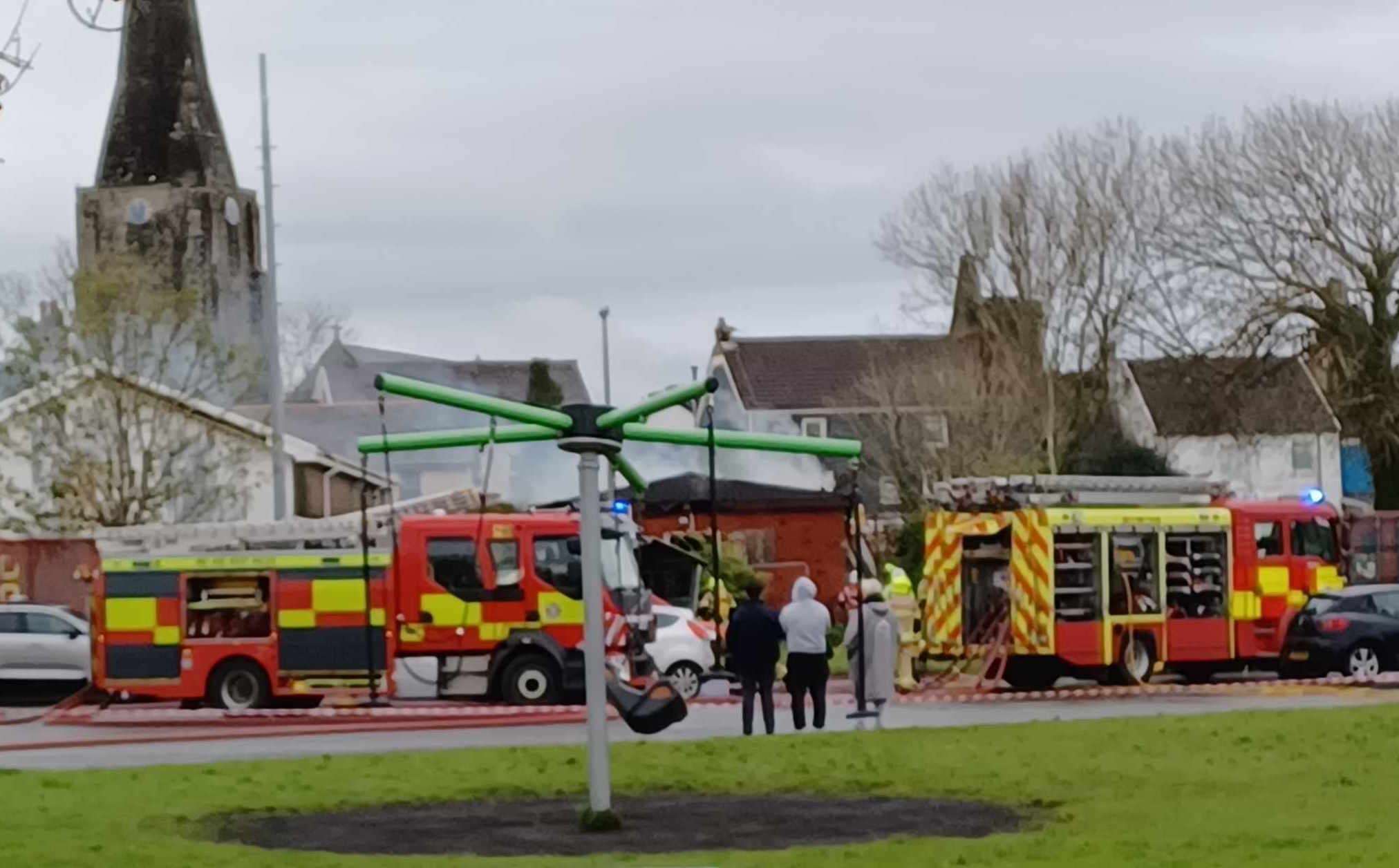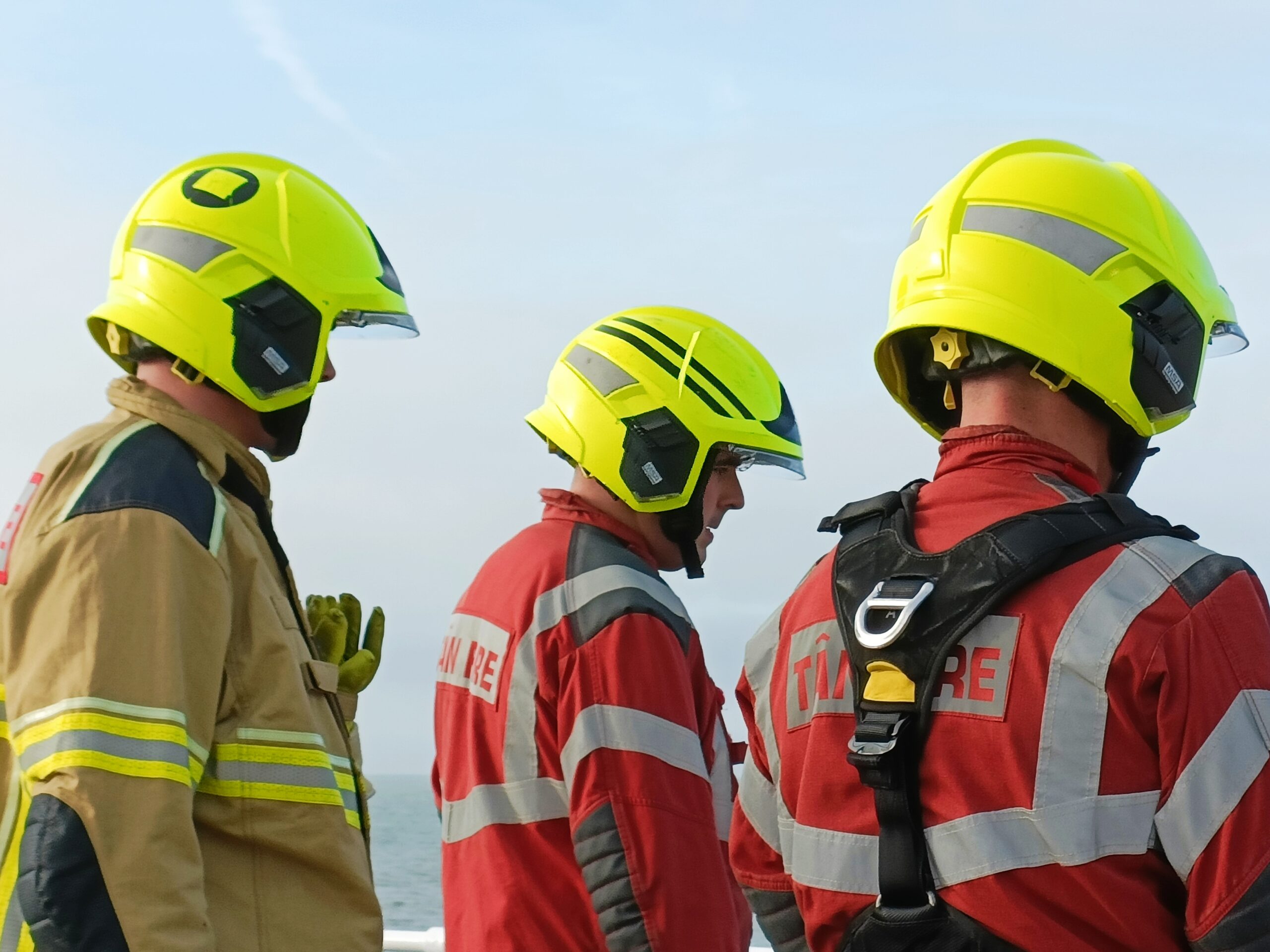Crews responded to a LGV containing general recycling waste which was smouldering in areas with high temperature readings. Crews gained access to the vehicle’s trailer to extinguish the fire and proceeded to remove approximately 30 tonnes of mixed recycling to turn it over and dampen it down. The road was closed due to the vehicle’s contents spreading onto the bypass.
Crews utilised three hose reel jets, one thermal imaging camera and small gear to remove the waste and extinguish the fire.
This incident required a multi-agency response with Natural Resources Wales, Dyfed-Powys Police and the Local Authority in attendance. MAWWFRS crews left the scene at 12:27am on Saturday, June 8th.
This fire is believed to have been caused by disposable vapes which had not been correctly disposed of. Several disposable vapes were found within the lorry’s contents, which seemed to have been crushed and damaged, which would have sparked and ignited the rest of the rubbish within the lorry.
Recycling Batteries Safely
Research by the National Fire Chiefs Council (NFCC) and Recycle Your Electricals has found that the number of battery fires in bin lorries and at waste sites in the UK have reached an all-time high, with an increase of 71% from 700 in 2022 to over 1,200 in the last year.
With an increase in the number of portable electrical items containing lithium-ion batteries, there comes a significant fire risk if they are binned instead of being recycled.
Lithium-ion batteries are hidden inside many everyday household electricals, from laptops, mobile phones and tablets to electric toothbrushes, vapes and earpods. These batteries can become crushed or damaged in bin lorries or waste sites if they aren’t recycled and can lead to a fire.
Not only do battery fires endanger lives, but they can also cause serious environmental and health risks.
For more information on how to correctly recycle batteries, please visit the Recycle Your Electricals website. To find your nearest recycling facility, please visit the Wales Recycles website.







